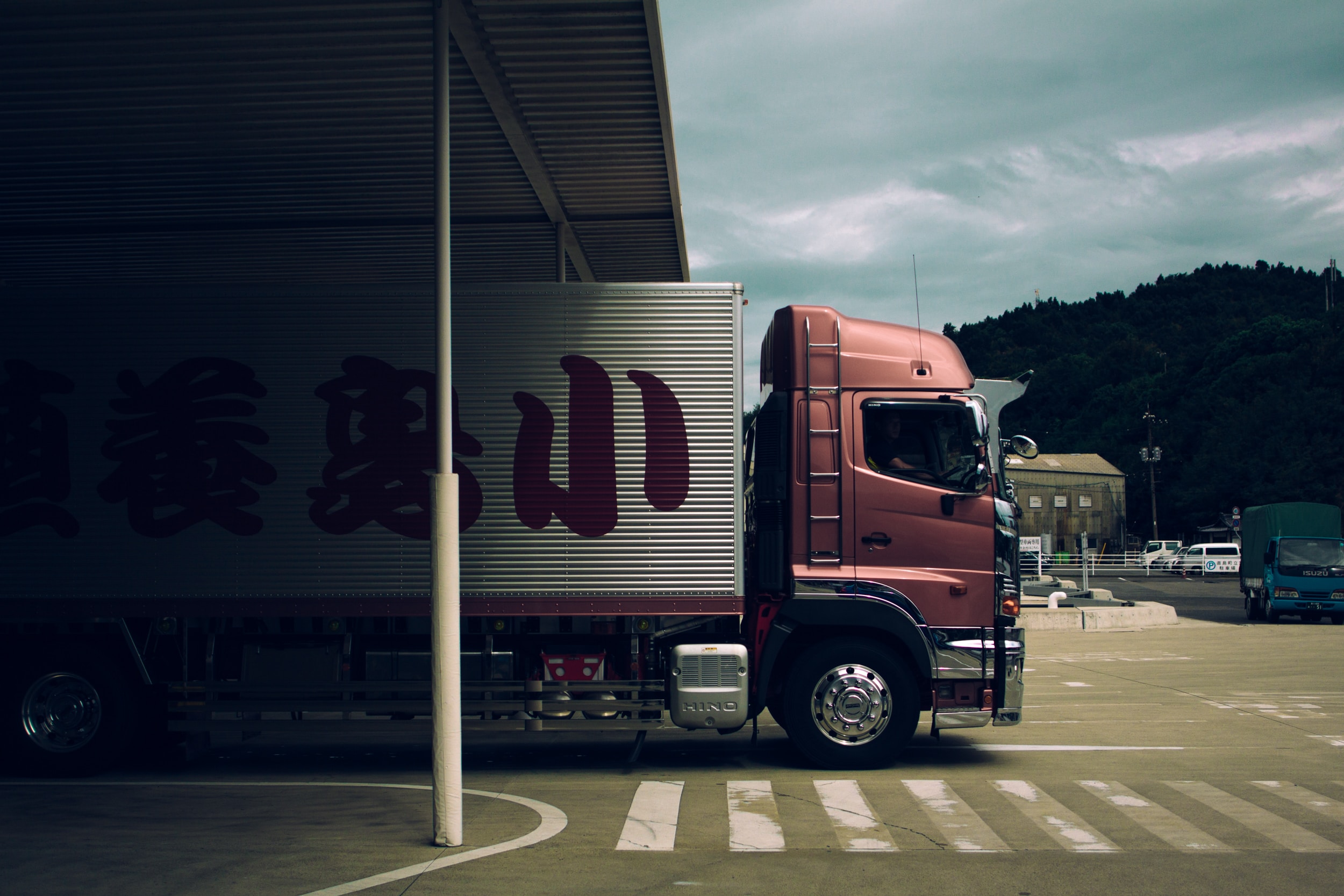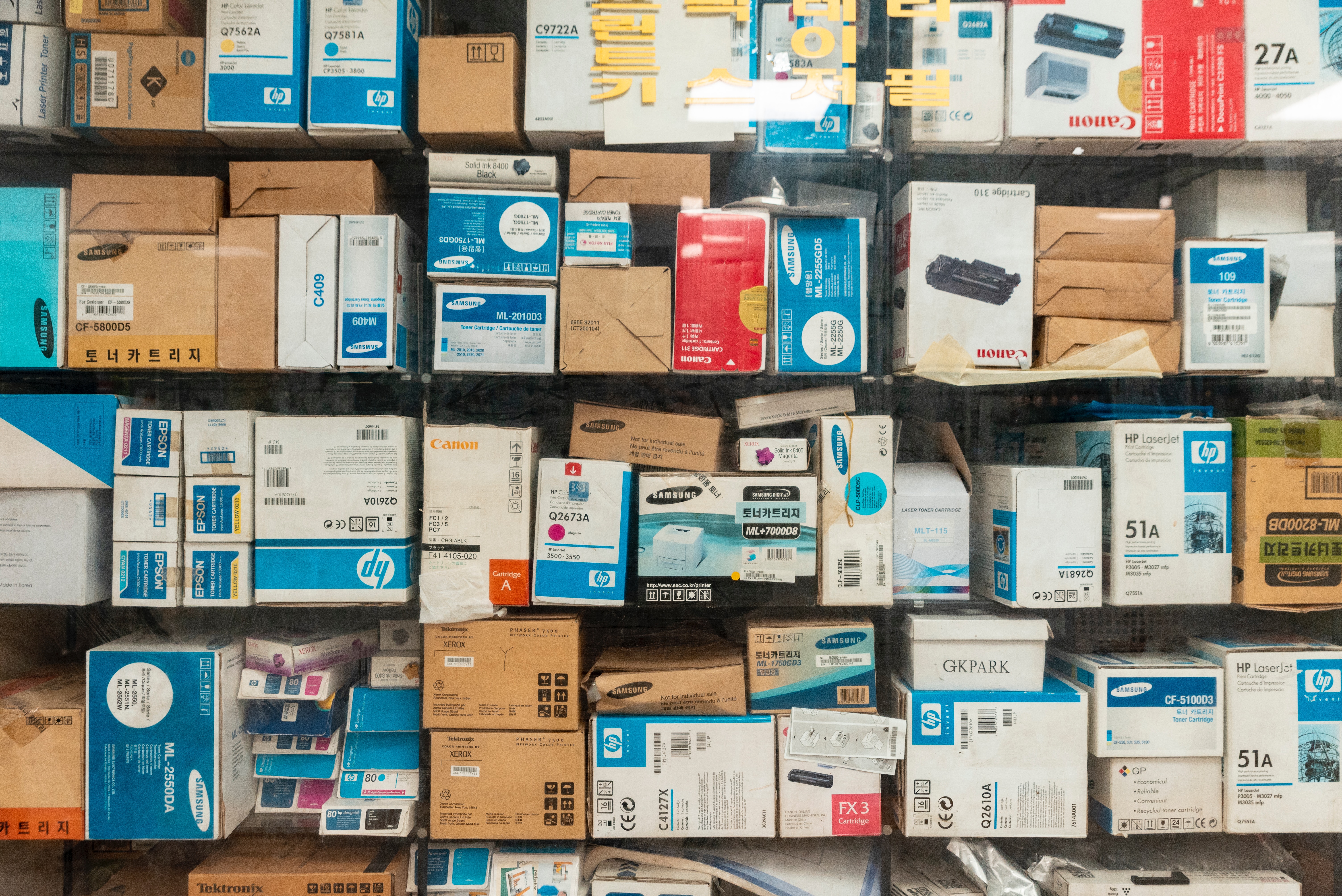In order to answer your request, we are obligated to process the data given above. Sometimes, however, we would like to use them for slightly different purposes, such as statistical data or informing you about our new products and services.We promise that we will use the given information for communication purposes only. We also remind you that you can unsubscribe from our mailing at any time (see Privacy Policy).
In logistics as in life: everything changes almost from. day to day. Emerging technologies and end-customer trends mean that the supply chain is never dull, and as industry experts we can continue to develop, automate our work and achieve better and better results improving the whole supply chain management.
So let's take a look at the latest supply chain trends: robots, AI, green logistics, and... more! If you, like me, are a logistics freak and like to know what proverbially will be on the whole industry tongues soon - be sure to read today's article on the latest trends of supply chain!
-
Circular supply chain management
I think that if one were to ask the average blacksmith what he associates logistics with, he would list warehousing and transportation. And the latter - is closely linked to the generation of endless amounts of greenhouse gases. Following this line of thought, it would seem that ecology and supply chain stand on two separate sides of the green barricade.
Meanwhile, it doesn't have to be that way at all. Both consumers of e-commerce itself (especially those of the younger generations) and logistics companies are well aware of the measures that need to be taken to improve such a state of affairs. Nowadays companies need to focus on sustainability - this is required both by the consumers themselves and by third parties, such as the European Union.

That's why many companies are trying to green the supply chain - opting for eco-packaging (made from recycled materials, biodegradable or even biological sources), betting on warehouses located closer to consumers (which also improves last mile delivery) and OOH delivery (out of home delivery, especially to parcel lockers). Investing in eco solutions in undoubtedly the future of many industries - including logistics. Sustainability is the component of concern for the state of the planet - and that, in turn, is a huge plus in the eyes of online shoppers. After all, as many as 78 percent of online shoppers globally say sustainability is extremely important to them when making purchasing (and logistics) decisions - and they're even willing to pay more for eco solutions (data from a survey conducted by Trivium Packaging). In this case, it's worth improving and optimizing your supply chain - remembering that even a small green step for a company through economies of scale is a huge win for the environment.
-
Increased Visibility
Another factor, that plays a big role in today's logistics landscape is great supply chain visibility.
Indeed, tracking various goods is important not only from the point of view of the end customer, who wants to have a preview at least in last-mile delivery. It is also crucial for owners of online stores, who, thanks to increased visibility, also have much greater control and can continuously monitor the status of their inventory, which in the long run affects the stability of their business.
Among the key challenges in this area are several factors, including a good real-time view of the data, prevention of interruptions that can affect the entire supply chain, and taking care of the agility of the entire process.
From the point of view of the end customer, tracking allows you to ignite the receipt of a package and is actually a "right, not a commodity" these days. Considering the demands of online shoppers for same/next day delivery and delivery even on weekends (remember the growing popularity of the Prime feature on Amazon) and the acceptance of 2h shifts in terms of the so-called delivery window advanced tracking of the path their package takes is something you literally can't ignore.
-
The power of artificial intelligence
Another great power of the supply chain in modern times is the ability to implement artificial intelligence solutions which will make logistics much more smooth and almost fully automated.
AI is these days treated almost as a single source of truth in most industries. When it comes to supply chain trends, it can be used for example in logistics planning challenges allowing for better demand forecasting and in fact, in warehousing automating, improving the level of accuracy and efficiency. Remember also, that the digital supply chain is also about the... pricing as well. The supply chain profits are depending mostly on this factor. As you can see from the chart below (prepared by McKinsey & Company consulting firm), it's the key element of the supply chain business. The AI-based dynamic pricing strategy, therefore, is a must to get a bigger piece of the proverbial supply chain market share cake.
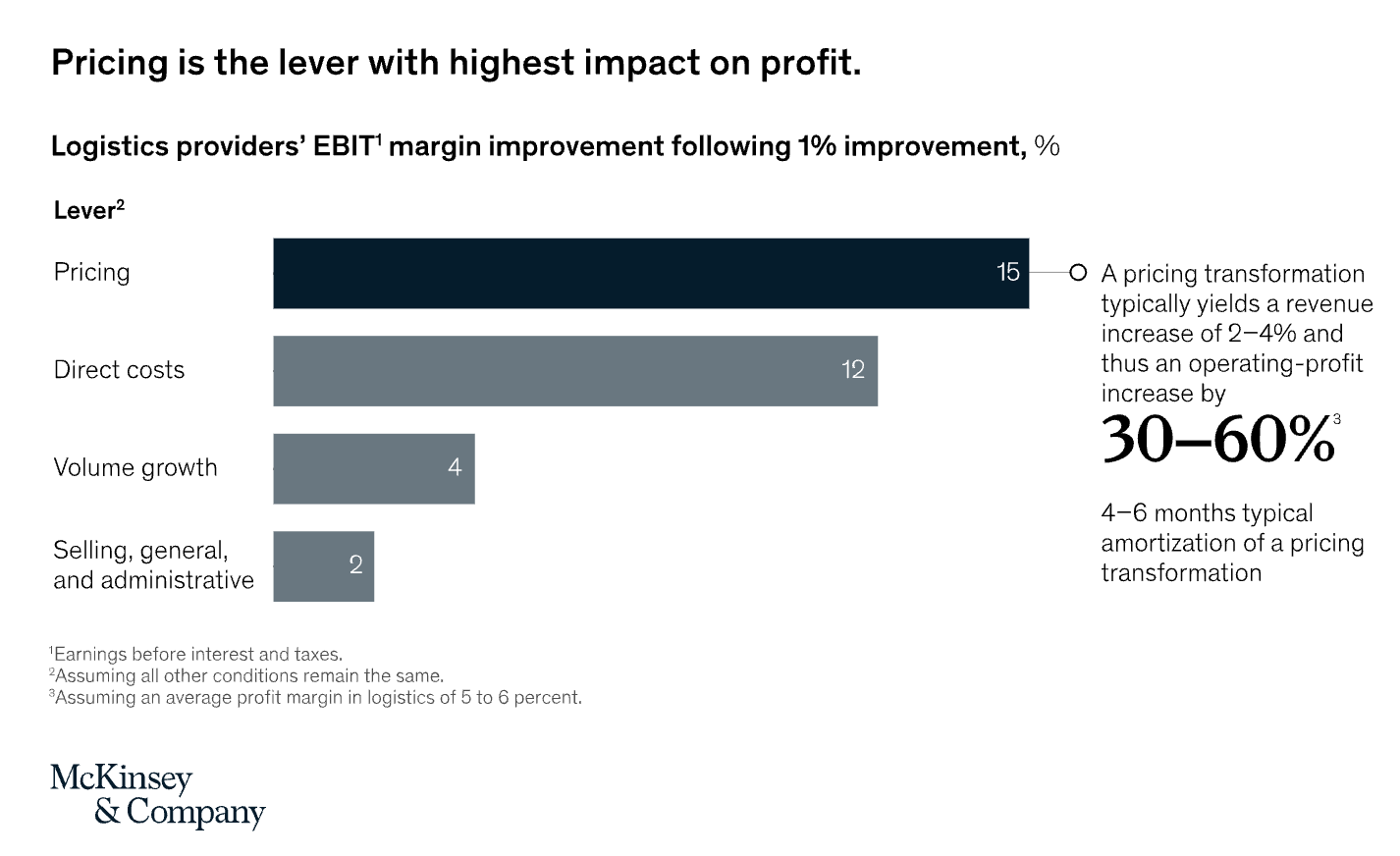
In addition, AI is also shaping a new vision of transportation. Some companies are even right now testing the use of automated vehicles in their supply chain fleet. Part of this process is also further work on self-driving trucks and drones delivery. And this is not a supply chain song of the future: this kind of solution has already been relied on by Domino's, UPS, or industry giant Amazon.
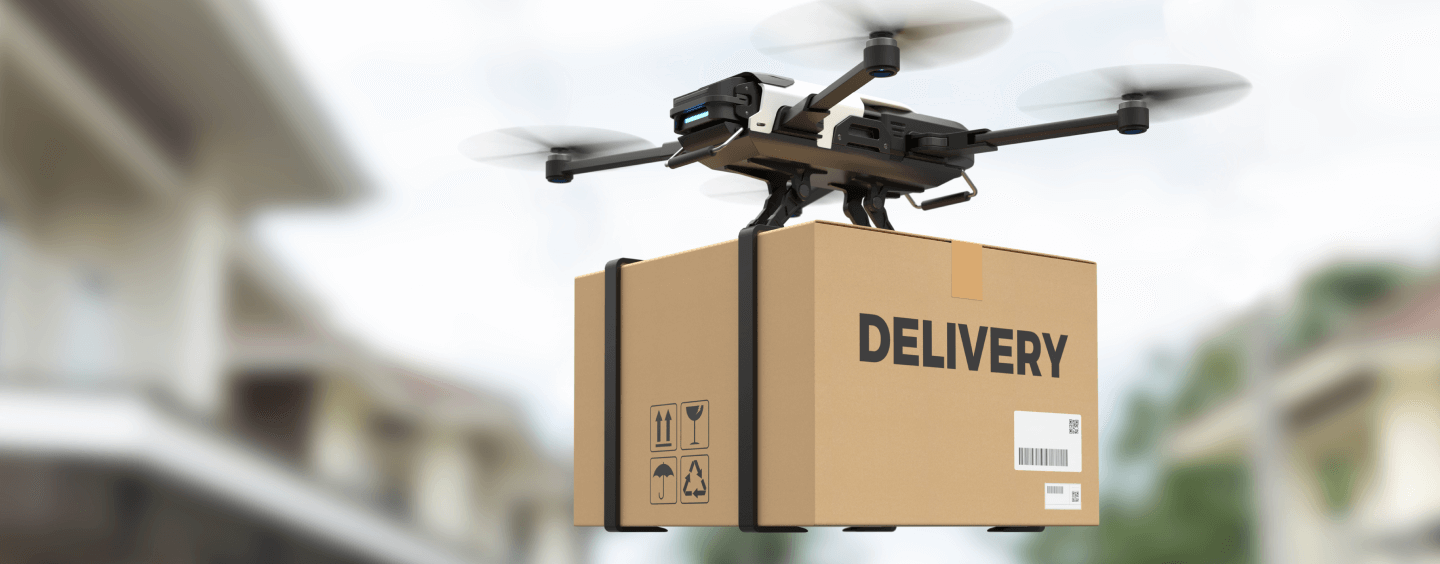
What's more, AI can reduce fuel consumption even up to 20% thanks to the latest route optimization systems. This is because the technology takes into account traffic jams, road construction and even.... weather events! Thus, it analyzes real-time conditions also influencing the feelings of the customer - who, thanks to the determination of the shortest and fastest possible route, is guaranteed the fastest possible delivery.
-
Supply chain resilience
Recently, many factors have had a negative impact on the economy - just name the pandemic of Covid-19, the Russian invasion of Ukraine, or galloping inflation. It is also worth noting that not all export industries have suffered equally from the above; some have been affected by these problems significantly more than others:
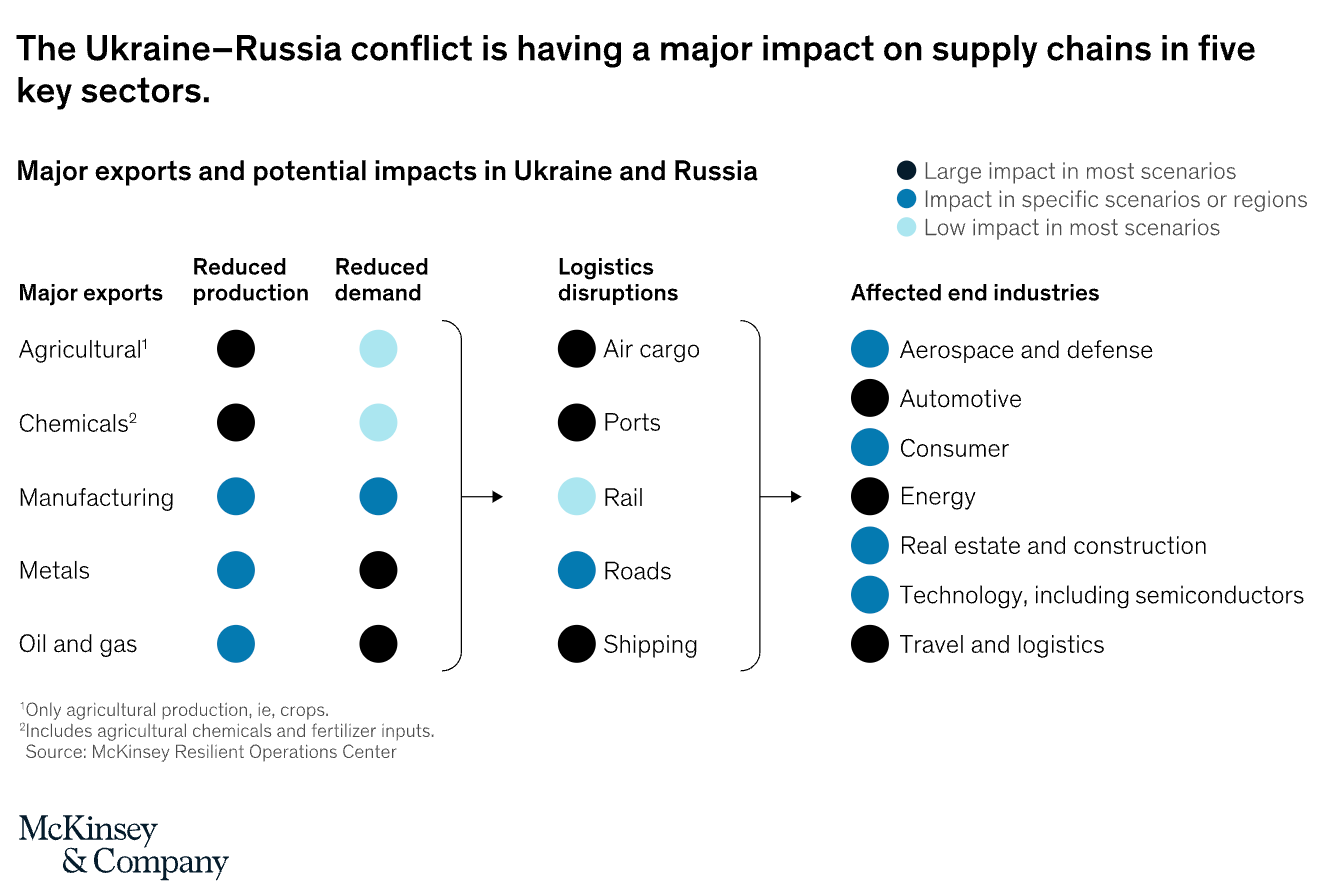
Can such situations be prevented in the future? As a logistics business, we, unfortunately, have no control over them; however, this does not mean that the only thing left for us is to sit back. We should actively prepare for potential changes by betting on smart risk management. Such an approach involves treating the growing amount of data as a vital asset, allowing us to react much more quickly to disruptive events as they occur.
So in order to be able to respond appropriately to any dynamic changes occurring in the supply chain, it's worth taking a step back and analyzing the weaker points of the business. Consider whether all links in the supplier relationship are working as they should; whether any critical areas are completely out of your control or are coming solely from one source. If, as a result of this analysis, you notice any emerging challenges - it is worth taking care of them as soon as possible.
-
Even greater focus on customer-centricity
Maybe I'll say something obvious, but businesses have to take care of the real needs of their customers. In the case of supply chains, this refers to the outlining of time and preferred delivery method, as well as costs and betting on eco solutions.
Research conducted by Metapack says clearly: logistics has a huge impact on e-commerce success. Below you will find the most important factors that affect the satisfaction and loyalty of online shoppers:
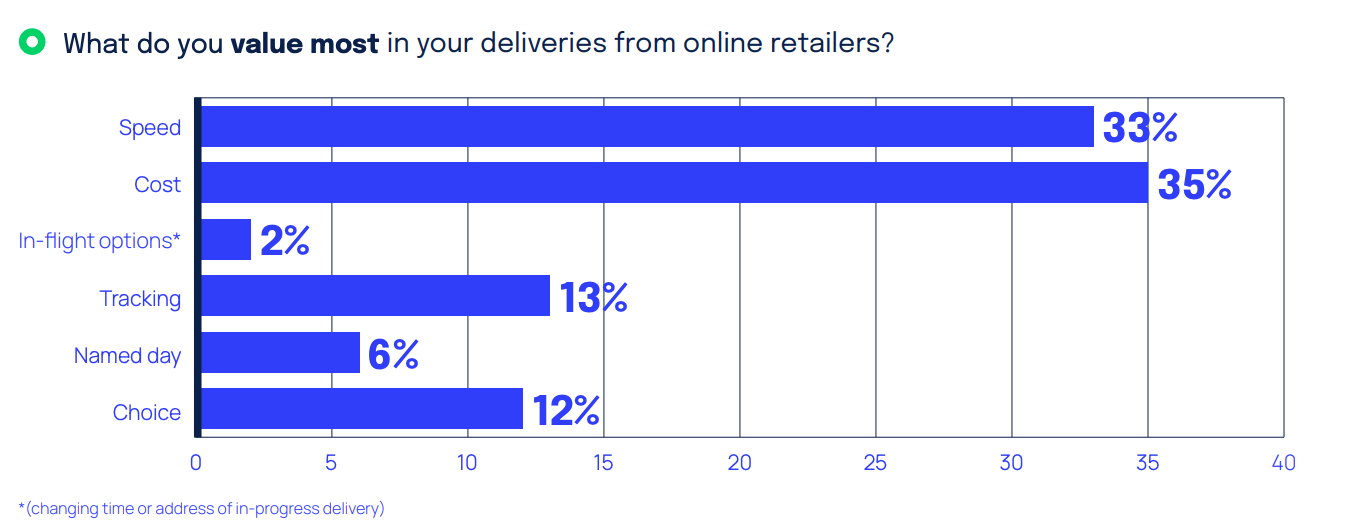
That's why same and next-day delivery is triumphing, forcing the industry to bet on overnight shipping; that's why so many giants among stores selling online rely on completely free delivery and free returns. High technology in logistics is important - as well as the needs of customers, and if I were to point out whether it was the egg or the chicken first, let me be clear: the power of AI in coming year won't be worth anything if it's not aimed at customization and real market needs.
Supply chain management under full control
As you can see, the supply chain trends for 2023 are the undeniable future of logistics and will continue to evolve in the years to come.
The digital supply chain of modern times is based on AI and the internet of Things. It benefits from a range of automation solutions and chain optimization to keep your business running smoothly and efficiently over time. Chain agility has also a significant impact on the industry landscape, affecting inventory flow, eliminating human error appearance, and improving customer experience. Better chain processes can for instance reduce labor costs, but also lower chain disruption. Delivering goods of e-commerce can be much easier - all those benefits, just in case you didn't notice so far - lie right at your fingertips, literally within reach of your supply chains.
Si implement those tendencies of the supply chain right now - and get ready for the logistics of a future full of new happy clients!
